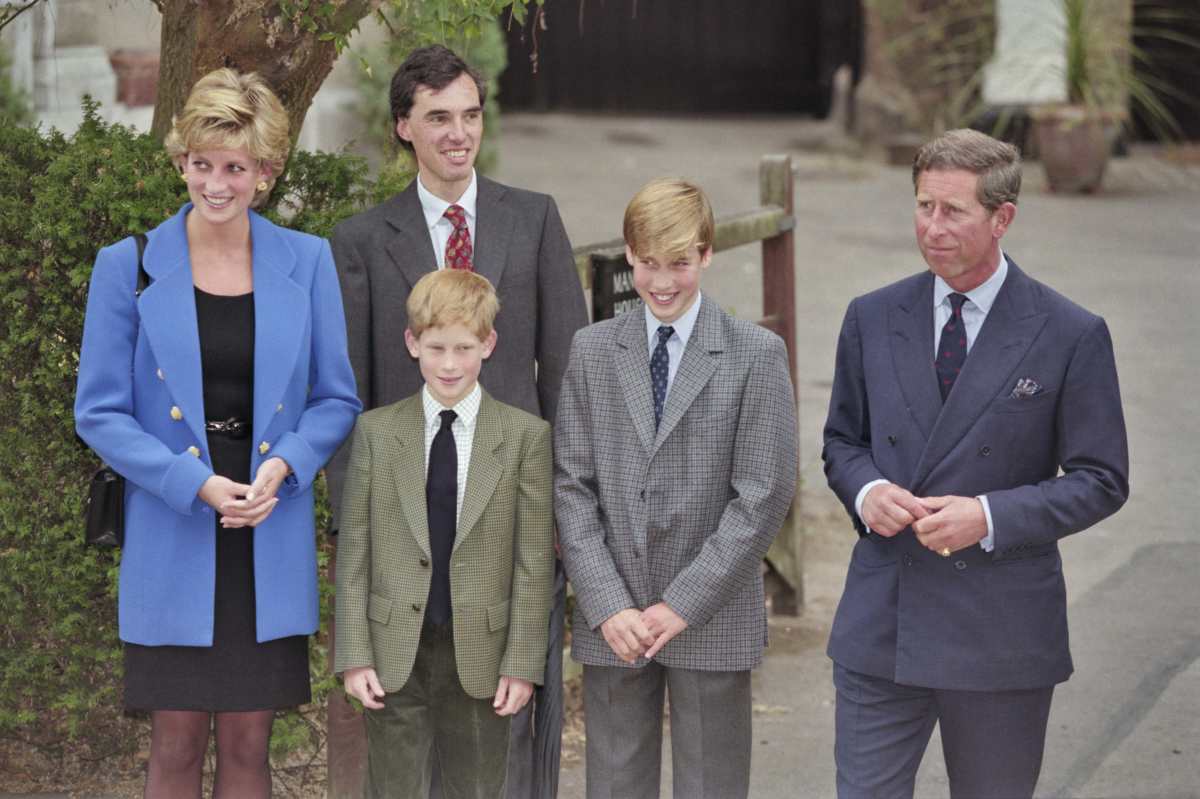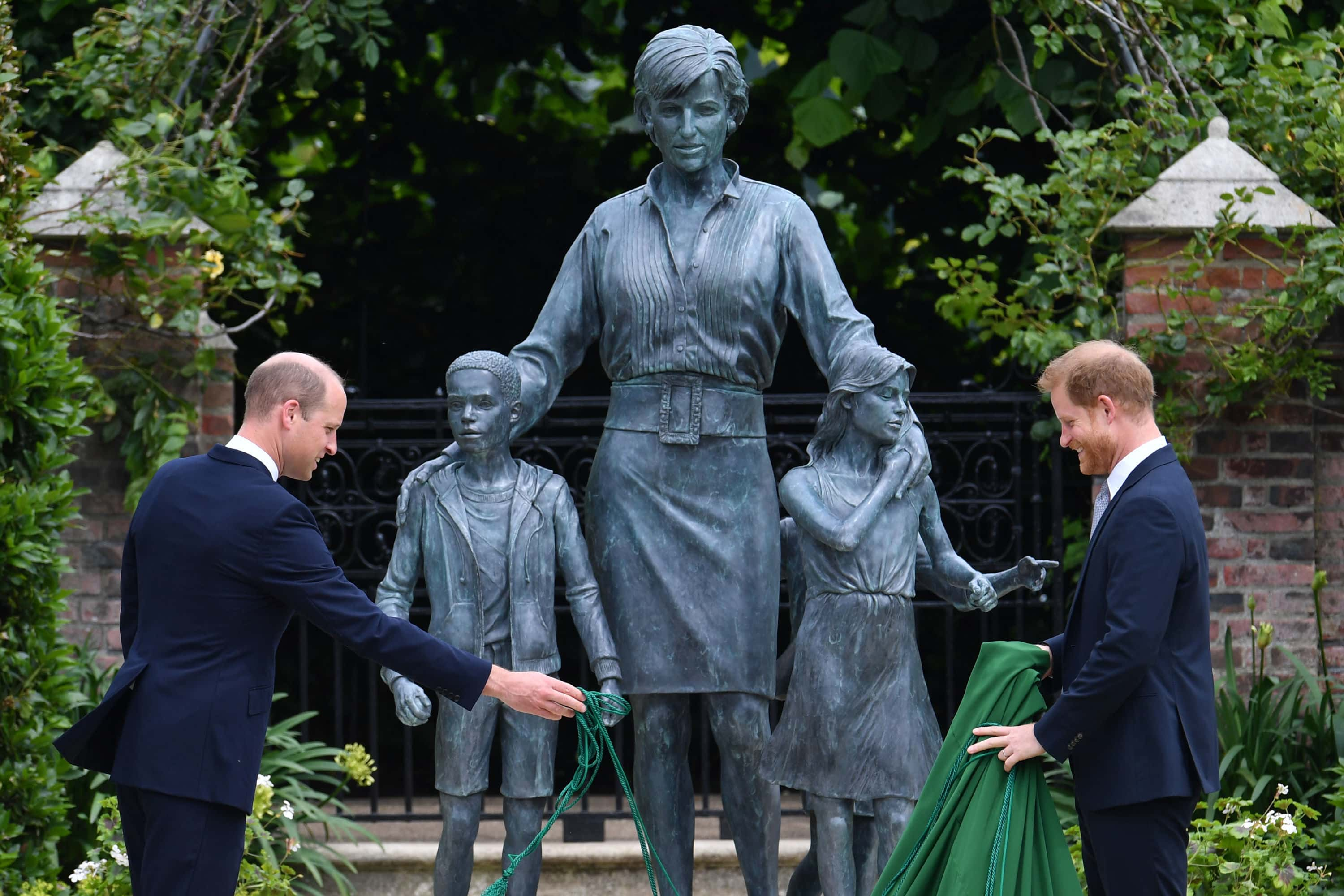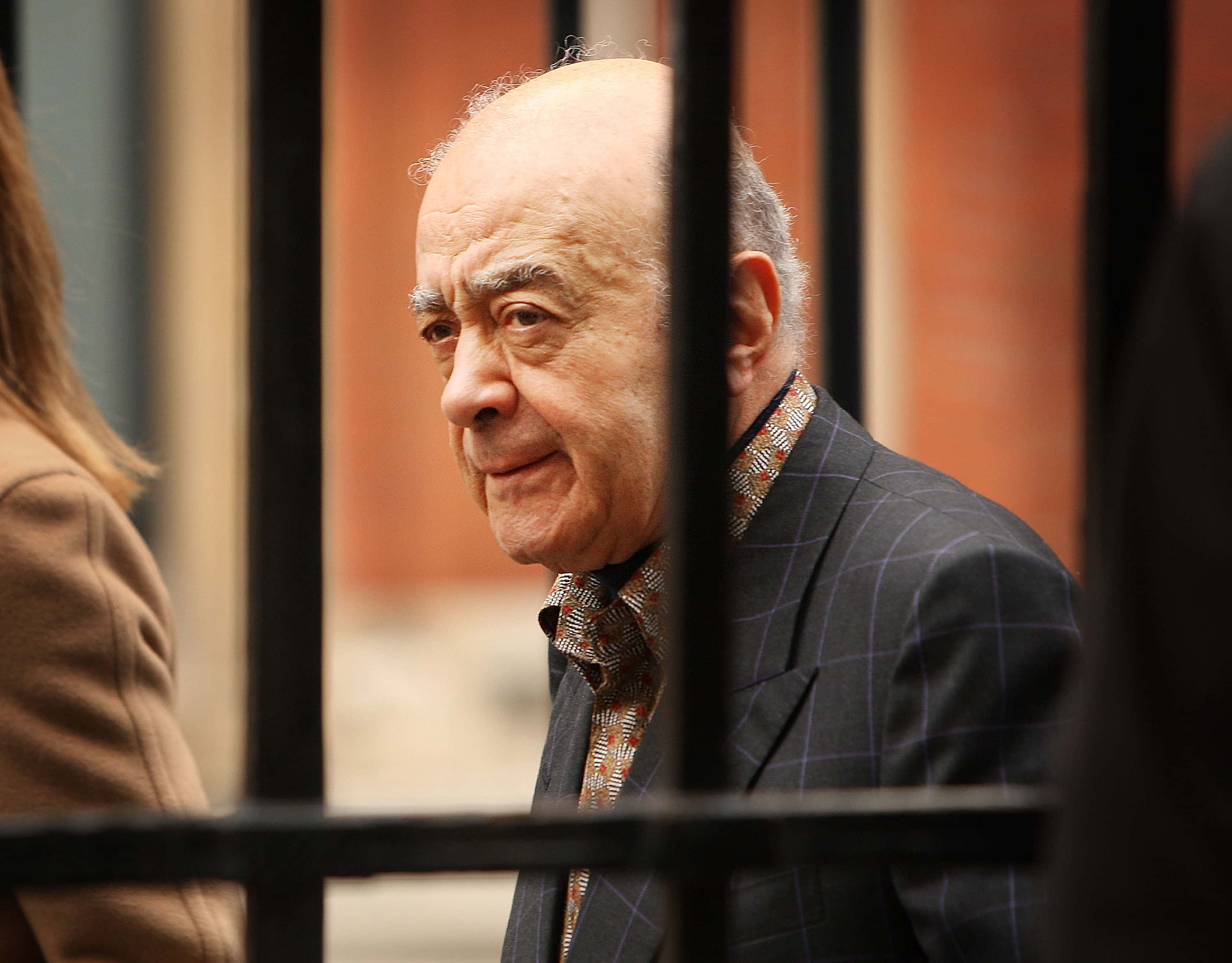Scotland Yard KNEW of Princess Diana's fears about a staged car crash but didn't share her note to French cops

SANDRINGHAM, UNITED KINGDOM: Scotland Yard officials are now under fire for how they handled a note that detailed Princess Diana's worries that she would die in a staged car accident. In October 1995, Diana confided her worries to Lord Mishcon, her attorney. Two years later, she died in a car accident in Paris with Dodi Fayed and the driver, Henri Paul. 'Investigating Diana: Death In Paris', a four-part documentary that premieres on Sunday, August 21, on Channel 4 at 9 pm to commemorate the tragedy's 25th anniversary, revisits the mystery surrounding the note.
Lord Mishcon gave senior Metropolitan Police officers his contemporaneous typed account of their meeting after Diana died, and they stored it in a safe but it took six years for the note to reach the French authorities looking into her crash. It wasn't until more than 10 years after it was written that Diana's siblings were made aware of its existence. Princes William and Prince Harry were kept in dark for a very long time. Even a mysterious addition to the note has been proposed as a possible explanation for why the original note wasn't made public sooner.
READ MORE
'The Princess' on HBO: Was Princess Diana the People's Princess or Queen of Paparazzi?
Princess Diana’s death in a car crash in 1997 shocked the world and ignited a global debate about how and why she died.
— Channel 4 Press (@C4Press) August 20, 2022
Investigating Diana: Death in Paris -a 4 part docu-series- tells for the first time the story of the two police investigations into her death.
📺Sunday at 9pm pic.twitter.com/KjwxLNENVX
The Daily Beast reported that The Operation Paget investigation cost £12.5 million and took 14 experienced officers nearly three years to complete. Ultimately, an extensive 832-page report found that her death was "a tragic accident," brought on by a combination of the driver, Henri Paul, being intoxicated and under the influence of prescription drugs, paparazzi aggressively pursuing the car on motorcycles, and her not wearing a seatbelt.
The month following Diana's death, Lord Mishcon read his note aloud during his meeting with police chiefs to emphasize its significance. He informed the authorities that a recording of Diana has been made which allegedly stated that "efforts would be made, if not to get rid of her by some accident in her car, such as a pre-planned brake failure... at least to see that she was so injured or damaged as to be declared unbalanced (in her mind)."

"The note is important because it's equivalent to somebody's premonition. If you were a police officer investigating it, you want to hand the account over to the French. They didn't do that. They stick it in the safe and they don't reveal it," stated Michael Mansfield, a lawyer who represented Mohamed Al Fayed, Dodi's father, on the show.
Prior to the inquest, Lord Mishcon, who was 90 years old, had made a statement to Operation Paget, which is how the Mishcon Note came to be known and how Diana's sister Sarah first learned about it. "Lord Mishcon was concerned to take the note," Sandra Davis, a Mishcon employee who attended the meeting with Diana, told the inquest. "He thought that it was important that the police knew that he had made it and that she [Diana] had said what she had said."

Police kept a record of their conversation with Lord Mishcon in September 1997. The report came to the conclusion that Scotland Yard would get in touch with the attorney or his firm "if it ever appeared" there were some suspicious elements to the fatal crash. However, a second page that was attached to the same record when it made an appearance at the inquest years later contained text that supported the police's decision to keep the note a secret.
The Mishcon Note came to light when Paul Burrell, Diana's butler, disclosed that he had a letter from Diana that was similar and foretold her demise. Lord Mishcon attempted to get in touch with Lord Stevens, and police sought legal advice on what to do with the Mishcon Note that was kept in the safe.
On December 30, 2003, it was finally delivered from Scotland Yard to the coroner's desk. A week later, an inquest into Diana's death was launched before being postponed. In 2008, it came to the conclusion that she had been "unlawfully killed," in part due to the driver's "gross negligence."
The two princes had only "limited knowledge" of the 1997 accident in Paris, according to the former Scotland Yard chief Lord Stevens, whose investigation into her death forms the basis of the program. Stevens was invited to Kensington Palace to brief William and Harry on the thorough findings of his report nine years later, in December 2006. It was a "difficult session for them," he said, lasting roughly 90 minutes. The Duke of Cambridge, who was 24 at the time, and the Duke of Sussex, who was 22, asked him "very pertinent questions."
Lord Stevens told The Mail on Sunday, "I was in possession of the facts of what had taken place, from the beginning of the problem outside the Ritz with the car, to the death and bringing back the body. I went in and had an hour, an hour and a half, with them, giving them the details of what took place. Over half the time, I was answering their questions."
According to Lord Stevens, he spoke with Prince William during the initial phase of his investigation to gather information. "We exchanged correspondence to inquire about what William knew about his mother and her habits beforehand and whether she said anything about getting married to Dodi, which he didn't know about at all."
The allegations made by Mohammed Al Fayed, the father of Dodi, who also perished in the collision, on August 31, 1997, were not taken seriously by either prince, according to Lord Stevens. The former owner of Harrods made a number of outlandish claims and hardly believable allegations in the years following the accident, including that the princess was pregnant at the time of her death and that important members of the royal family were somehow involved in a lavish murder plot. Lord Stevens had attempted to inform Al Fayed of the report's contents before it was made public.
But the businessman, who was born in Egypt, rejected him despite their weekly meetings over the course of the three-year investigation. "I went down to Harrods, and he refused to see me,' he said. 'We gave him the results of the report through his legal team, and he refused to see me."

In the documentary, Lord Stevens also describes how Diana's butler, Paul Burrell, found a note that Diana had written and hidden in the pantry of Kensington Palace when he spoke with Prince Charles about it at St James's Palace. She predicted in it that she would die due to "brake failure and serious head injury." Later it was claimed that the disgraced BBC journalist Martin Bashir, who in 1995 used fictitious documents to trick the princess into giving him an interview for Panorama, had heightened her paranoia at the time the note was written.
Lord Stevens stated in the documentary, "The allegation had to be investigated whether it's the future King of England or anyone else. You have to go there. No one is above the law," adding, "I wasn't frightened of the Establishment; the decision was made to see Prince Charles because of the Burrell letter and the allegations made in that letter." He also says, "Princess Diana had stated that she was going to be murdered by her husband. We had to see if there was any substance to that, and we had to have his reply to it. I'm sure nothing like that had ever happened before, so that was unprecedented. He didn't mind being involved in any way shape or form and that was noted."
Numerous police officers, doctors, firefighters, and eyewitnesses were interviewed for the four-part series, 'Investigating Diana: Death in Paris'. Lord Stevens was one of them. It includes interviews with both police forces and covers the two investigations into Diana and Dodi's deaths, including the initial 1997 investigation by the French Brigade Criminelle and Operation Paget as well as the inquest into the couple's deaths.
Alan Brown, who was Metropolitan Police Assistant Commissioner at the time of the report, said in the program, "Ultimately, you had two young boys grieving. They were probably more affected than anybody else. To have somebody suggest that their father and their grandfather had some responsibility for their mother's death, you know, no matter how small that kind of concern was – and the fact that it was constantly being repeated in the press – to be able to give them confidence as to what happened and why it happened in itself was really important."










